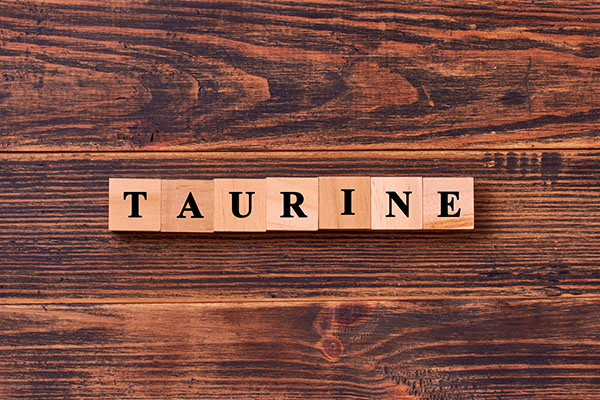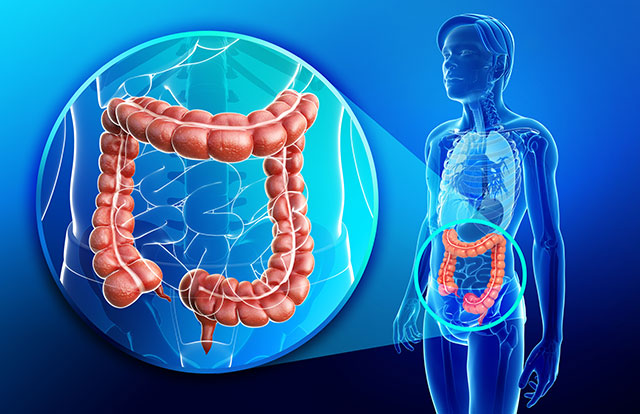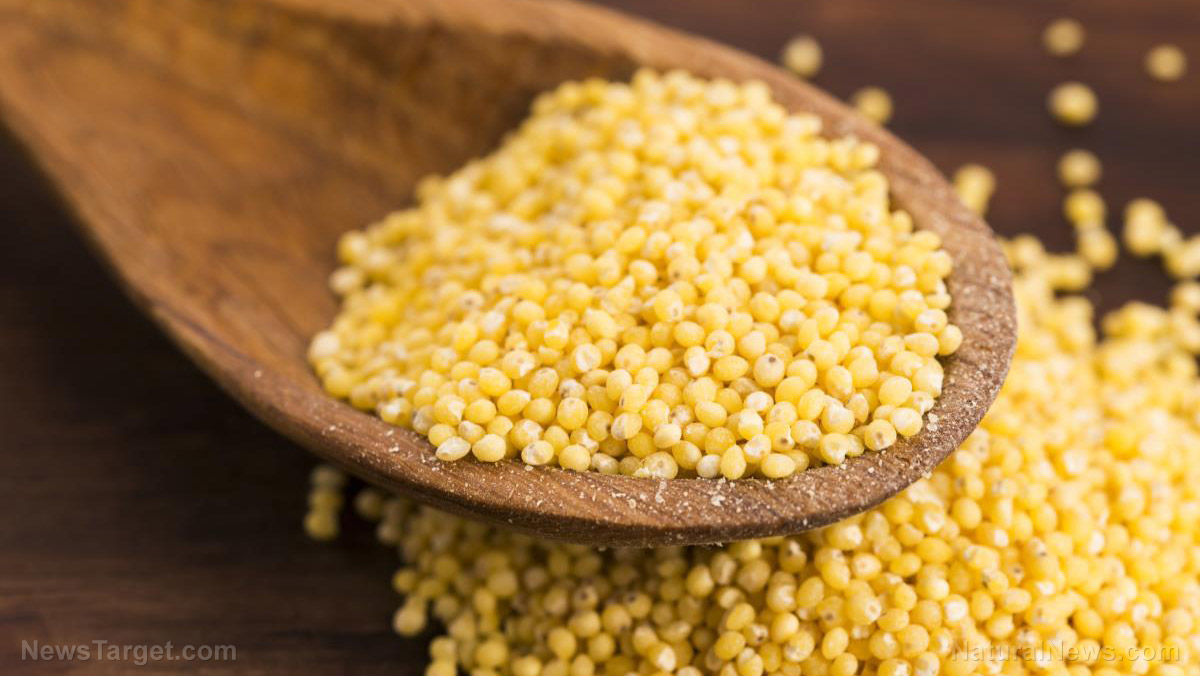STUDY: Taurine is a key nutrient that promotes longevity and good overall health
06/21/2023 / By Evangelyn Rodriguez

Taurine is one of the most abundant amino acids found in humans. The human body naturally produces taurine in the liver, and it is also present in large quantities in protein-rich foods, such as fish and meat. Because of its availability, taurine is considered only conditionally essential – meaning you only need more of it during periods of illness or stress – and a deficiency in taurine is generally rare.
But research shows that taurine concentrations in the blood naturally decrease with age. This is problematic in terms of health as low taurine levels have been linked to several age-related conditions, such as retinal degradation, hypertension and decreased immune functions. In animals, a significant decline in taurine levels also accompanies age-related changes, suggesting that taurine deficiency could be a driver of aging.
In a new study published in the journal Science, researchers shed light on the role of taurine in animal and human aging. They also explored the potential benefits of taurine supplementation and how it could affect the healthspan and lifespan of different species. (Related: Unsung hero: Taurine is one of the most amazing amino acids out there.)
Taurine can improve the lifespan and healthspan of animals and humans
Aging is associated with various changes that affect not just a person’s appearance, but also how his or her organs function. Impairment, dysfunction and decline are common themes of aging and are often accompanied by changes in the concentrations of certain metabolites. Metabolites refer to molecules that are produced when the body breaks down food, drugs, chemicals or its own tissue.
Some metabolites are suspected of contributing to the aging process. Although how or which molecules are involved is still poorly understood, researchers believe that if these molecules are identified and restored to their normal levels, they could potentially disrupt and reverse the aging process. One such molecule suspected of having anti-aging effects is the amino acid, taurine.
To investigate whether the age-related decline in blood taurine levels observed in mice, monkeys and humans contributes to aging, researchers observed a group of middle-aged male and female mice orally fed taurine until the end of their lives. They reported that mice of both sexes that received taurine lived longer than mice that did not. (Related: Unlocking longevity: What do people who live to 100 have in common?)
The researchers noted that the median life span of the taurine-treated mice increased by up to 12 percent, and their life expectancy at 28 months increased by about 18 to 25 percent. These findings suggest that changes in taurine concentrations play a role in the aging process and that returning blood taurine levels to normal can extend the lifespan of an organism considerably.
A meaningful anti-aging therapy is expected to improve not just the lifespan but also the healthspan of an organism. Healthspan refers to the length of time an organism can stay healthy and free of disease. The researchers reported that the taurine-treated mice enjoyed improvements in how their bones, muscles, pancreas, brains, guts and immune systems functioned, indicating that taurine supplementation can help maintain optimal overall health and wellness. The researchers repeated the experiment on monkeys and observed similar results.
To determine if the benefits of taurine applied to different species, the researchers next observed worms and yeast. While taurine did not improve the replicative lifespan of the unicellular yeast, it increased the lifespan of multicellular worms. The researchers also found that taurine’s anti-aging effects involved several mechanisms, namely:
- It helped reduce cell senescence (aging), an event marked by a permanent halt in cell division.
- It protected against telomerase deficiency, which leads to progressive telomere shortening – a hallmark of aging.
- It suppressed mitochondrial dysfunction, an age-related event that predisposes the elderly to metabolic diseases.
- It decreased DNA damage, another driver of aging that causes cell death and senescence.
- It reduced inflammation, a pervasive feature of aging that is also associated with age-related diseases, such as cardiovascular disease, cancer, Alzheimer’s disease and Type 2 diabetes.
In humans, an association analysis of metabolite clinical risk factors revealed that low levels of taurine and related metabolites (hypotaurine and N-acetyltaurine) are associated with many health issues, such as increased abdominal obesity, hypertension, inflammation and Type 2 diabetes. On the other hand, the researchers found that exercising naturally increases the concentrations of taurine metabolites in the blood, suggesting that this could be one of the mechanisms underlying the anti-aging effects of exercise.
Other benefits of taurine supplementation
Studies have shown that getting a good amount of taurine from dietary sources or supplements can help you maintain healthy bodily functions. The most common dosage for taurine is 500 to 3,000 milligrams (mg) per day, but taking up to 6,000 mg daily is still considered safe, as noted in a 2012 report by the European Food Safety Authority.
Here are the incredible health benefits offered by taurine:
Protects against cardiovascular disease
According to a review published in the journal Amino Acids, animal studies have shown that taurine supplementation can stop the development and progression of atherosclerosis. The thickening and hardening of the arteries due to the buildup of plaque can cause a heart attack, stroke or aneurysm. Atherosclerosis is also a major cause of morbidity and mortality worldwide.
Protects against brain aging
According to an animal study published in the journal Amino Acids, chronic taurine supplementation can ameliorate age-related decline in spatial memory acquisition and retention. The researchers attributed this protective effect on the specific changes caused by taurine in the brain, such as an increase in the levels of certain neurotransmitters, which oppose those brought about by aging. (Related: Boost brain health with taurine, an amino acid with antidepressant properties.)
Protects against retinal diseases
Taurine is the most abundant amino acid in the retina, a thin layer of tissue that lines the back of the eye. Taurine depletion, which comes with age, has been linked to the development of retinal diseases, such as glaucoma and diabetic retinopathy.
According to a study published in the journal Progress in Retinal and Eye Research, taurine can help prevent eye diseases because its antioxidant properties can protect retinal cells from oxidative stress, which plays a pivotal role in the development and progression of retinal diseases.
Improves markers of diabetes
An animal study published in the journal Experimental & Molecular Medicine investigated the effects of taurine on glucose and fat metabolism in diabetic rats. Rats that were fed a taurine-supplemented diet for 12 weeks showed the following improvements compared to rats that received a placebo:
- Improved insulin resistance
- Reduced blood cholesterol levels
- Reduced blood glucose levels
These findings suggest that taurine supplementation may be of help to people trying to manage their blood sugar and blood cholesterol levels.
Taurine is semi-essential amino acid that offers a wide-range of health benefits, which includes boosting longevity. For more stories on how to extend your lifespan and healthspan, visit LongevityScienceNews.com.
Watch the following video to learn about the health benefits of taurine.
This video is from the Holistic Herbalist channel on Brighteon.com.
More related stories:
Male infertility can be caused by taurine deficiency.
Boost brain health with taurine, an amino acid with antidepressant properties.
Sources include:
Submit a correction >>
Tagged Under:
aging secrets, alternative medicine, anti-aging, food cures, food is medicine, food science, health science, longevity, natural cures, natural health, natural medicine, nutrients, nutrition, prevention, research, supplements, taurine
This article may contain statements that reflect the opinion of the author
RECENT NEWS & ARTICLES
BloodSugar.News is a fact-based public education website published by Blood Sugar News Features, LLC.
All content copyright © 2018 by Blood Sugar News Features, LLC.
Contact Us with Tips or Corrections
All trademarks, registered trademarks and servicemarks mentioned on this site are the property of their respective owners.




















